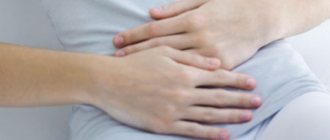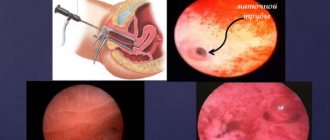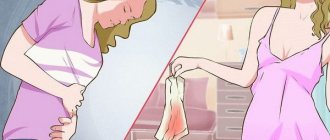Many women have more than once encountered such an unpleasant disease as thrush. It not only causes discomfort, but is also a fairly persistent disease, which is not so easy to get rid of. This is largely due to the fact that the causes of this problem can be very different. But a big role is also played by the reluctance of women to promptly respond to the symptoms that appear, as well as the fact that treatment is often not carried out comprehensively and does not affect sexual partners. Yes, and there are certain dangerous misconceptions, for example, the belief that illness is not terrible during menstruation.
Thrush: what is it and what are the causes
This disease is associated with the emergence and development of yeast-like fungi of the genus Candida. They exist constantly in the female body, but in a normal situation, when a woman is healthy and does not experience problems with the immune system, their number is limited. With a significant weakening of the immune system, due to the creation of favorable conditions for the fungus, the colony begins to grow, and the production of Candida increases sharply.
Vaginal candidiasis manifests itself through the appearance of itching in the genital area, swelling of the labia and, most notably, a curd-like discharge from the vagina. There is also discomfort when urinating, pain in the lower abdomen. A predisposition to this disease is observed in sweet lovers and diabetics, since an increase in blood sugar creates good conditions for the spread of the fungus.
The development of candidiasis does not occur quickly. After all, it takes some time for the microflora imbalance to increase. That is why it is not always possible to associate the cause and provoking factor with the disease. The most common causes of the disease may be:
- Vaginal dysbiosis;
- Long-term and frequent use of antibiotics;
- Changes in hormonal levels caused, for example, by taking contraceptive medications or disruptions in the menstrual cycle;
- Long recovery period after surgical procedures;
- Frequently wearing tight, form-fitting underwear;
- Failure to comply with personal hygiene rules;
- Frequent visits to swimming pools, swimming in ponds, lakes and other bodies of water with dirty water;
- Weakness of the immune system, vitamin deficiency;
- Other diseases and infections;
- Diseases that are sexually transmitted.
Vaginal dysbiosis
Long-term and frequent use of antibiotics
Changes in hormonal levels
Failure to comply with personal hygiene rules
Long recovery period after surgical procedures
Frequently wearing tight, form-fitting underwear
Frequent visits to swimming pools
Weakness of the immune system, vitamin deficiency
Thrush can become a masking background for the development of more complex infections, for example, postpartum endometritis or post-abortion salpingitis. At the same time, many women are interested in whether thrush is possible during menstruation. We'll talk about this next.
https://youtu.be/VBbpvTeY3fk
Thrush: causes
Thrush is a fungal disease that develops on the mucous tissues of the genital tract in women. There are several reasons for its occurrence:
- weakened immunity;
- use of antibiotics;
- inhibition of vaginal microflora;
- hormonal imbalance.
Thrush occurs at any age and can appear quite often. The course of thrush is variable with periods of subsidence and sharp exacerbation. Doctors note that a particular exacerbation of thrush is observed in the periods before and during menstruation. Is there a direct relationship between thrush and the menstrual cycle?
It should be said that this fungus is present in almost every, and even healthy, organism. But it begins to actively develop only when the body is weakened.
The relationship between thrush and the menstrual cycle
The manifestation of signs of candidiasis is most pronounced on the eve of menstruation, since it is during this period that drastic changes in hormonal levels occur. At the same time, all the symptoms begin to increase, but the main manifestation occurs at the beginning of the critical days and the period of their occurrence. At this time, itching, pain and burning sensation are felt when urinating. But thrush can also occur directly during the menstrual cycle.
At the same time, menstruation itself is not the cause of the disease. They act only as a provoking factor, creating favorable conditions for the development of fungi of the genus Candida. And the body itself experiences an imbalance during this period, hormonal levels are disrupted.
The following factors also play a role:
- Menstrual discharge, which creates soil on the mucous membrane for the proliferation of fungi;
- Frequent use of hygiene products, which disrupts the microflora in the vagina;
- The use of tampons and pads with fibers, chemical components, fragrances that irritate the mucous membranes;
- Insufficient regular change of underwear;
- Using someone else's linen and hygiene products;
- The effect of intimate soap with an aggressive chemical composition.
That is why thrush during menstruation is not a rare occurrence. In such conditions, you should promptly pay attention to the first symptoms of the disease.
Prevention measures
The first symptoms of vaginal candidiasis appear a week or several days before menstruation.
During this period, hormonal changes in the female body begin. The immune system is weakened, chronic diseases are revived. Ideal conditions for the development of pathogenic flora.
To relieve symptoms, women are given the following advice:
- switch to cotton underwear;
- If possible, do not wear trousers or tight clothing;
- choose high-quality intimate hygiene products made from natural raw materials or with a hypoallergenic composition;
- take herbal teas with chamomile and string;
- if necessary, resort to sedatives.
Menstruation brings a lot of unpleasant moments to women. When thrush appears against this background, the body is subjected to stress.
To prevent re-infection, you must strictly follow all the doctor’s instructions and be sure to undergo treatment with a partner.
What is the danger of an advanced disease?
If the unpleasant symptoms disappear after menstruation, does the thrush go away completely? There is no clear answer. Pathogenic flora will cause harm at the slightest malfunction of the immune system. And the absence of characteristic discharge is not an indicator of a healthy body.
Candidiasis can occur without symptoms, causing harm to internal organs. An advanced form of the disease can lead to severe illness and even infertility. Therefore, it is better to resort to treatment and prevention of relapses.
Features of thrush during menstruation
So, the not very pleasant smell of menstrual flow is the first sign of thrush during menstruation. But even before the onset of menstruation, a burning sensation is felt when urinating. In some cases, a woman endures such days even more difficult than usual. At the same time, the discharge itself becomes more abundant, and the duration of the menstrual period may increase. I am constantly bothered by itchy sensations, which cannot be relieved with local medications, and hygiene preparations do not have an effect.
Menstruation with thrush is characterized not only by duration, but also by the possibility of delay. The cause of this phenomenon is not the disease itself. But the factors that determine this phenomenon are still worth knowing:
- A delay in the cycle in women over 45 years of age with thrush is often evidence of the initial stage of menopause, since hormonal changes occur in the body, causing active reproduction of Candida.
- In the process of treating the disease itself, medications are used that contribute to the delay. The solution is to continue therapy until complete recovery. Upon completion of the course, you should expect the cycle to resume.
- Pregnancy, since it is during this period that thrush becomes a common companion. The weakening of the female body makes a woman vulnerable to illnesses. And the presence of actively produced progesterone and gonadotropin causes a change in hormonal levels. But in this case, it is important to remember that in pregnant women, thrush appears a few weeks after conception. If it appears after a few days, then this is the basis for asking questions to your sexual partner and a reason for starting complex treatment.
Diagnosis of thrush
After the first signs of thrush appear, immediately go to the doctor, who will carry out all the necessary manipulations. First, the doctor will find out all the necessary information to determine the full picture of the disease, then an examination in a gynecological chair and a smear.
Examining a smear under a microscope is a quick diagnosis, but it will not help to understand the nature of the fungi that caused the disease. Only bacterial culture of a smear can help with this.
Women are interested in the question of whether thrush can go away after menstruation. Even if the symptoms have disappeared, it is still better for you to be examined by a gynecologist.
Treatment of illness during menstruation
Many people are interested in whether it is possible to treat thrush during menstruation. The answer cannot be unambiguous, because the treatment procedure itself during such a period must be extremely careful. A woman is unlikely to be able to unambiguously diagnose her illness - problematic discharge is masked behind normal menstrual discharge. And pain is often attributed to typical manifestations.
It can be unequivocally stated that self-medication is unacceptable. Improper use of drugs can lead to disruptions in the menstrual cycle, and candidiasis itself can become chronic. In addition, not all drugs are acceptable for use. You cannot use suppositories during menstruation; douching is also inadvisable. The lack of an integrated approach leads to incomplete cure and constant relapses. Therefore, it is recommended to postpone the main therapy for the period after menstruation.
Can thrush go away after menstruation?
When a woman develops thrush during her period, it is quite difficult to get rid of it, since therapy for this condition has some peculiarities. Before and after menstruation, topical medications can be used; during menstruation, treatment is carried out only with tablets for thrush. But if the disease began earlier, and the doctor prescribed treatment with suppositories, then you should not interrupt the course. The main thing is to follow certain rules:
- during menstruation you should not douche;
- after administering the drug, you need to lie down for at least 30 minutes so that the medicine has time to be absorbed into the mucous membrane (it is best to put the suppository on at night);
- For personal hygiene you need to use sanitary pads.
More often it happens that thrush does not go away after menstruation, because the vaginal microflora is disturbed, as a result of which candida fungi actively develop. The disease can only intensify and lead to pain that begins during and after sexual intercourse.
Factors of increased attention
Thrush should be treated actively after the end of the critical days. As already mentioned, suppositories and vaginal tablets should not be used. But it is important to remember that candidiasis is a dangerous disease.
And special attention should be paid to the following manifestations:
- Long-term course of the disease is more than 7-10 days, when the itching and burning do not end;
- Symptoms and negative feelings after taking medications not only do not disappear, but new manifestations are added to them;
- There is discharge of pus and blood after menstruation;
- Signs have become more complex - nausea, vomiting, chills, increased body temperature;
- Frequent recurrence of the disease - 3-4 times a year or more often;
- Recurrent manifestations after a 3-month period from the date of completion of treatment.
These manifestations are not only a cause for concern, but also a reason for prompt consultation with a specialist.
What is the connection between menstruation and thrush?
Patients at a gynecologist’s appointment do not immediately understand why he talks about the relationship between these two factors - menstruation and vaginal candidiasis.
During menstruation, the mucous membrane becomes deformed and becomes loose. It is easy for fungi to multiply in it. After all, pathogenic flora is activated only in favorable circumstances.
To create these conditions, it is enough:
- do not adhere to hygiene;
- ignore preventive visits to the doctor;
- self-medicate;
- have sex with many dubious partners;
- have bad habits.
Often the occurrence of vaginal dysbiosis is influenced by the use of potent drugs. They can undermine the immune system. Another influence is a constant state of stress and a low standard of living.
A little about thrush
Thrush or vulvovaginal candidiasis is an inflammation of the vaginal and vulvar mucosa. Women often face this disease. Caused by a fungus of the genus Candida.
In 10% of women, Candida is part of the normal vaginal microflora, and does not cause painful manifestations. Candida is normally found on the skin, intestines, and oral cavity. The disease occurs when the body's defenses are weakened and favorable conditions are created for the growth of the fungus.
Once in the vagina, the fungus attaches to the epithelial cells and waits in the wings. Moreover, it coexists in small quantities with the vaginal microflora. Carriage of a fungal infection occurs. For fungus to multiply in the vagina, there must be favorable conditions.
When they occur, candida actively divides, forms hyphae and penetrates into the deep layers of the epithelium and even into the lamina propria of the vaginal mucosa. In severe cases, the infection enters the blood vessels and spreads throughout the body along with the blood. Causes damage to internal organs.
Favorable conditions for candida reproduction:
- high humidity;
- pH 6-6.5;
- temperature from 21-37º C;
- sufficient amount of nutrients. Candida cannot get past sugar, and this is glycogen, which is abundant in the epithelial cells of the vagina.
The fungus competes with the normal vaginal microflora for nutrients and does not like the acidic environment created by lactobacilli. When lactobacilli die, for example, when taking antibiotics, candida grows.
Diabetes mellitus, which goes along with candidiasis, is characterized by a deficiency of insulin and an excess of glucose - a nutrient medium for the fungus.
Changes in hormonal levels during thyroid disease, pregnancy, menopause, stress lead to changes in the immune system, and also change local conditions in the vagina. This leads to thrush. Decreased immunity also leads to the growth and reproduction of candida.
Consequences of thrush
Without treatment, it is unlikely to go away, because these two concepts have no direct connection with each other. They can only intensify symptoms and cause more serious discomfort. For this reason, you need to understand why thrush starts before your period and how best to deal with it. Having the appropriate knowledge can be a very effective weapon in the fight. Don’t be shy about contacting a doctor who will tell you what’s best, how to get rid of the problem and restore normalcy.
If thrush goes away after menstruation, the main symptoms disappear, there is no need to relax. To completely get rid of the problem, it is important to suppress pathogenic microorganisms and reduce their number to a minimum. This is the only way to get rid of candidiasis and its unpleasant manifestations for a long time.
Suppositories can be used for treatment, but here you need to be as careful as possible. Using this remedy at home can cause some complications. Their use is prohibited during menstruation. There are good reasons for this. But the therapeutic process can begin immediately after the end of the corresponding cycle.
Thrush can cause serious harm to a woman’s health, ranging from menstrual irregularities to infertility. These are borderline options. Between them there are many other unpleasant things, such as cervical erosion, inflammatory processes inside the vagina. If a woman is pregnant, the consequences for her can also be dire, including the loss of the child.
Therefore, if a woman is sick with chronic thrush, before becoming pregnant, it is imperative to treat the disease and take preventive measures. In addition, if a woman has pain when urinating after menstruation, it means there are problems with the urinary tract, such as cystitis and inflammation of the urethra.
What is thrush in women?
Before you begin to understand why thrush appeared after menstruation, it is very important to understand what this disease is.
In the scientific world, this pathology is called candidiasis. But among the people we call it thrush, since women have a large amount of white discharge from the vagina, very similar in consistency to cottage cheese or sour milk. The disease provokes the development of a fungus such as candida. It lives in small quantities in the body of every representative of the fair sex, and is an important part of the female microflora. However, if for some reason the amount of this fluid begins to increase rapidly, then the woman develops a disease such as thrush.
Treatment of thrush after menstruation
Before you see a doctor, follow some rules that will help you not to worsen the disease:
- completely abandon sexual relations, especially unprotected ones;
- treat the genitals with baby powder to reduce pain;
- normalize your diet by eliminating or minimizing the consumption of sweet, spicy, spicy, yeast-based baked goods and drinks, etc.;
- Carry out as many water procedures for the intimate area as possible;
- to relieve burning and itching, use soda and furacelin;
- limit physical activity as much as possible, since sweating contributes to irritation of the mucous membrane;
- give up tampons in favor of pads.
Drug treatment should be carried out immediately after the end of menstruation, since it is complex in nature and includes douching, the use of ointments, suppositories, tablets, etc. Doctors often prescribe suppositories - livarol, zalain, clotrimazole, as well as antifungal drugs in the form of tablets pimafucin, diflucan, flucostat.
To treat thrush, Trichopolum can be prescribed, which treats sexually transmitted diseases, but it can also cope well with thrush. If thrush is at an early stage, then nystatin tablets will help.
Symptoms noted with thrush
If thrush always starts after menstruation, this is a serious reason to consult a gynecologist for advice. There may be a very serious problem behind this simple fungal disease. Every woman should become familiar with the symptoms of thrush in order to recognize this pathology in time and begin to treat it in a timely manner. And so, let's look at what symptoms such a common disease as thrush of the female genital organs has:
- Vaginal discharge similar to cottage cheese. In a large amount of mucus, you will be able to notice small white dots, which in their consistency will be very similar to cottage cheese. This can be seen especially clearly if you wear black underwear.
- Women complain of a strong feeling of itching in the area of the external genitalia. If you begin to scratch the affected areas, the condition will worsen even more, since the causative agent of the disease will be able to penetrate into the deep tissues;
- In some cases, a woman experiences severe cutting pain when urinating. This is due to the fact that the protective functions of the urethral mucosa are reduced, which means that it becomes very sensitive to such an aggressive liquid as urine.
- Severe burning and discomfort during sexual intercourse. Please note that you should not be sexually active until you are completely cured of this pathology.
- And, of course, an unpleasant smell. In fact, it is not much different from the normal vaginal smell, but it is stronger and richer.
Thrush before menstruation manifests itself in the form of itching, so if you notice discomfort, an unpleasant odor, cheesy discharge or feel a burning sensation, you should immediately contact a gynecologist, undergo an examination and begin treatment for the disease. Many girls wonder
Can thrush disrupt the established schedule and duration of menstruation?
Answering this question, we note that doctors have not established such relationships. Vaginal candidiasis creates a lot of inconvenience, but with timely medical intervention, it does not have a significant effect on the body.
It is worth noting that the acute form of the disease, accompanied by other gynecological diagnoses, often leads to a deterioration in overall health, weakness and loss of healthy sleep.
Some drugs intended for the treatment of candidiasis lead to a delay in menstruation. At the end of the course, the menstrual cycle is usually restored, otherwise, it is necessary to look for other causes of the failure. Most often, it turns out that a girl is pregnant, because in this state her immunity weakens and she takes on all possible illnesses.
If a pregnant woman did not show signs of thrush before conception, its manifestation can be expected no earlier than two weeks after fertilization of the egg. If thrush begins on the fourth or fifth day, then the culprit of the disease may be the infected partner.









